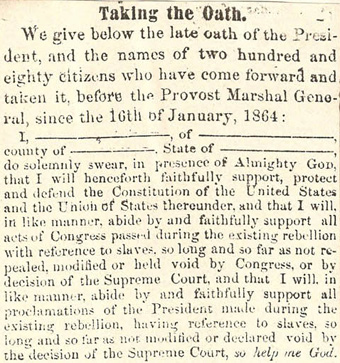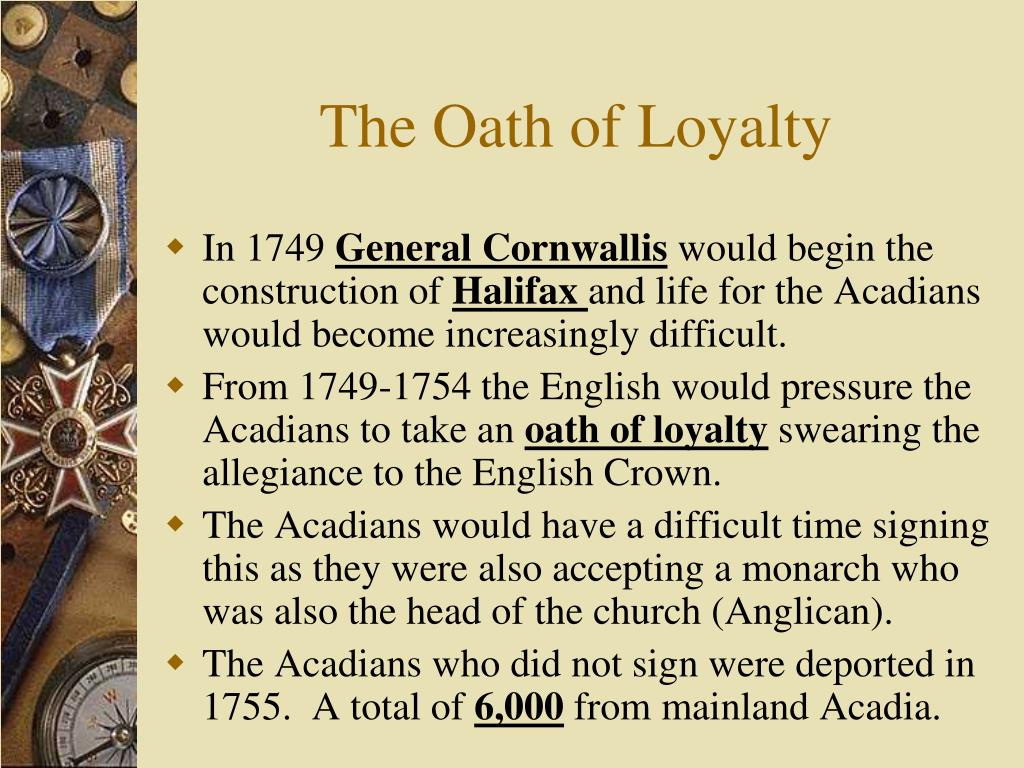

More broadly, this historical survey might also inform current academic and judicial debates about whether and under what circumstances political branch practice, especially high-profile precedents, ought to inform, or “liquidate,” the meaning or proper application of the Constitution and when, if ever, asserted exigencies of war might justify deviations from the constitutional norm. This historical recovery is significant for the ongoing constitutional litigation challenging such military trials.
Groups barred from taking oath of loyalty 1865 trial#
The Article then carefully examines the place of the Lincoln trial in the nation’s constitutional discourse over the past century and a half and demonstrates that, far from being viewed as a canonical precedent, it has been virtually unthinkable for anyone to rely upon the assassination commission as venerated legal authority. The Article unearths this fascinating but rarely examined chapter in the history of constitutional war powers. His assassination, however, prompted his successor to convene the most controversial military trial of them all, a highly unorthodox proceeding that not only revived the heated debate over the constitutional question but also precipitated one of the only instances in the nation’s history in which the Executive actually disregarded a judicial order-a presidential suspension of habeas to prevent the Article III courts from adjudicating a challenge to their own displacement.

At war’s end, the President and many of his congressional allies appeared to be on the verge of repudiating the system of military tribunals that Lincoln himself had superintended. During and immediately after the Civil War, all three branches engaged repeatedly with the question of the permissible scope of military justice and whether certain wartime exigencies might justify circumvention of Article III’s guarantees, but the question resisted resolution indeed, it was the rare constitutional problem that flummoxed even Lincoln. military commission precedent in American history”-as a leading precedent in support of such military jurisdiction, one that purportedly helped to establish a political branch practice that should inform constitutional understandings.Īs this Article demonstrates, however, such respect for the Lincoln assassination trial as a canonical constitutional precedent would itself be historically anomalous. The government and some judges have looked to the Lincoln assassination commission-in the words of one jurist, “the highest-profile and most important U.S. That question is significant in the United States’ current armed conflicts against nonstate terrorist organizations such as al-Qaeda because Congress has authorized military commissions to try such nonstate enemy forces for domestic-law, war-related offenses. Johnson’s decision implicated a fundamental constitutional question that was heatedly debated throughout the Civil War: When, if ever, may the federal government circumvent Article III’s requirements of a criminal trial by jury with an independent, tenure-protected presiding judge by trying individuals other than members of the armed forces in a wartime military tribunal?

Shortly after John Wilkes Booth assassinated Abraham Lincoln on April 14, 1865, President Andrew Johnson directed that Booth’s alleged coconspirators be tried in a makeshift military tribunal, rather than in the Article III court that was open for business just a few blocks from Ford’s Theatre.


 0 kommentar(er)
0 kommentar(er)
